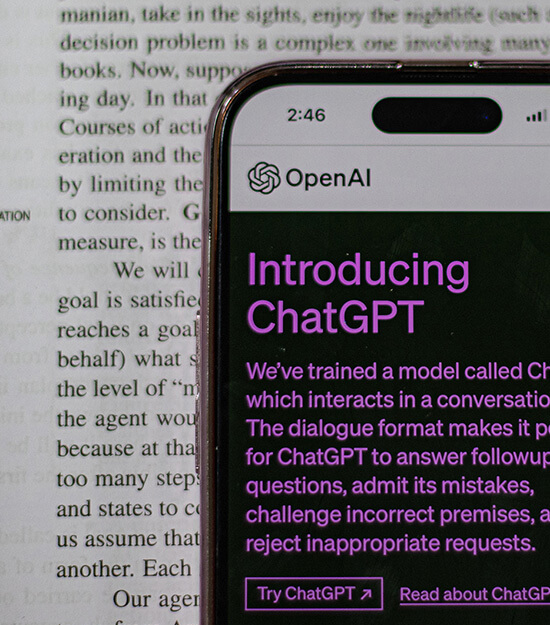Navigating the world of AI: Insights from our recent event
At a recent Walker Morris event for General Counsel and senior in-house lawyers, we looked at the ever-evolving landscape of artificial intelligence (AI). The head of Global Research for Tech, Media and Telecoms from Deloitte unveiled some intriguing revelations about this transformative technology. In this article, we break down these key takeaways to shed light on the intricate world of AI.

Demystifying the hype: The rise of “GenAI”
AI may be generating a buzz, but it’s crucial to realise that AI technology isn’t new. Instead, it’s an extension of existing technologies.
What’s sparking the current excitement is generative AI or “GenAI,” a group of AI tools like Chat GPT. These technologies are opening up businesses to even more possible uses for AI and making it more accessible and powerful than ever before. GenAI is a subset of AI tools capable of producing creative content, such as text, imagery, video and audio.
It can analyse vast volumes of unstructured data, making it a potential solution for information gathering and collation.
Accuracy concerns: A reality check
Deloitte’s insights underscore the importance of being cautious about accuracy when it comes to GenAI. A significant number of individuals have heard of GenAI – 52% of people in the UK – and 26% of those surveyed have used it.
However, it’s becoming increasingly clear that GenAI tools don’t always produce factually accurate answers – although 43% assume that it always does. Even more concerning for many, it can demonstrate bias – a dangerous issue when over a third of people assume that the answers GenAI generates are unbiased.
Data security: The elephant in the room
While accuracy and objectivity are concerns, many businesses are equally, if not more, concerned about the security of their intellectual property (IP) and confidential data when using AI tools. Around one in 10 respondents report having used GenAI tools for work, so the genie is already partly out of the bottle.
However, businesses are starting to see the public nature of GenAI tools as a roadblock in its adoption. Most organisations are now developing policies, processes and frameworks to control its use – which is sensible.
Be wary of cost: From free to expensive
Many Gen AI tools are currently free, mirroring a strategy employed by large tech companies to encourage adoption. However, as the use of these tools continues to grow, it’s highly likely that they’ll no longer be free. Read those terms and conditions carefully to avoid unexpected costs.
The need for regulation: A global divergence
AI’s rapid expansion has underscored the need for regulation. However, the European Union, the United States, and the United Kingdom hold different opinions on how to regulate AI. The UK is inclined to integrate AI within the ambit of existing regulators such as the ICO, FCA, and Ofcom, while the EU seeks proactive regulation. The EU’s draft AI Act defines “prohibited” AI systems and “high-risk systems”, providing a useful insight into those systems that will need careful thought and detailed impact assessments before implementation.
If the positions of the EU and the UK remain unchanged, it’s probable that most companies will need to comply with both regulatory frameworks. Businesses must adapt their practices and policies to align with the evolving AI landscape on a global scale.
We recently took a look at what came out of the AI Safety Summit in November 2023 – read our thoughts here.
“While accuracy and objectivity are concerns, many businesses are equally, if not more, concerned about the security of their intellectual property (IP) and confidential data when using AI tools.”
